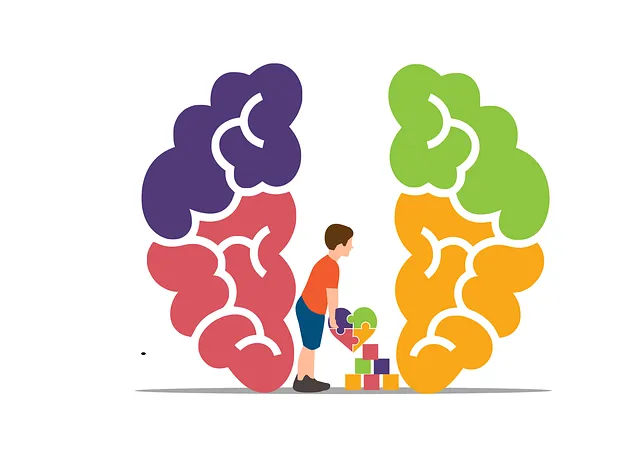Public awareness campaigns initiated by organizations like Kaiser Permanente in Denver aim to destigmatize mental illness through strategic messaging. By offering tailored services and utilizing exercises for self-awareness, resilience, conflict resolution, and compelling narratives, these campaigns foster understanding and encourage help-seeking. Targeting specific demographics with relevant communication strategies, such as social media for youth or community events for older adults, ensures personalized support. Kaiser Permanente's holistic approach, including risk management for professionals, normalizes conversations around mental health and enhances access to services tailored to Denver's unique needs. Evaluating campaign impact through metrics like knowledge gain and behavioral changes is crucial for continuous improvement.
Public awareness campaigns play a vital role in shaping societal perceptions and behaviors, especially regarding mental health. This article explores the development of such campaigns with a focus on Denver, highlighting key strategies for success. We delve into understanding campaign dynamics, identifying target audiences, crafting compelling messages, and leveraging resources like those offered by Kaiser Permanente for effective mental health outreach. Additionally, we emphasize evaluation methods to ensure impact and iterate approaches. Discover how these steps contribute to enhancing public awareness regarding mental health services available in Denver through organizations such as Kaiser Permanente.
- Understanding Public Awareness Campaign Development
- Identifying Target Audiences for Mental Health Initiatives in Denver
- Designing Effective Messaging and Communication Strategies
- Leveraging Kaiser Permanente's Resources for Mental Health Outreach
- Evaluating Impact and Iterating Campaign Approaches
Understanding Public Awareness Campaign Development

Public awareness campaigns play a pivotal role in shaping societal attitudes and behaviors. Understanding their development is crucial for creating impactful initiatives that resonate with diverse audiences. At its core, campaign development involves identifying a specific issue or cause, such as mental health awareness, and strategically crafting messages that educate, engage, and inspire action.
For instance, organizations like Kaiser Permanente, offering mental health services in Denver, have utilized successful public awareness campaigns to destigmatize mental illness. These initiatives often incorporate self-awareness exercises, promote mind over matter principles, and teach conflict resolution techniques as part of their outreach strategies. By combining compelling narratives, data-driven insights, and interactive elements, these campaigns foster understanding, encourage help-seeking behaviors, and ultimately contribute to improved community well-being.
Identifying Target Audiences for Mental Health Initiatives in Denver

In developing public awareness campaigns for mental health initiatives in Denver, identifying specific target audiences is paramount. Kaiser Permanente, a prominent healthcare provider in the region, offers mental health services that cater to diverse demographics. The first step involves understanding the unique needs and challenges faced by each group within Denver’s population. For instance, young adults might be more receptive to campaigns focused on stress management and mindfulness meditation through social media platforms, while older adults could benefit from community-based events promoting open conversations about mental health.
Effective communication strategies are essential in engaging these audiences. Mental Health Education Programs Design tailored for different age groups, socioeconomic backgrounds, and cultural identities can significantly enhance the impact of awareness campaigns. By incorporating various methods such as workshops, peer support groups, and digital resources, Denver’s initiatives can foster a culture where mental well-being is prioritized. Encouraging open dialogue about mental health issues, including access to Kaiser Permanente’s services, ensures that individuals receive the necessary support tailored to their specific needs.
Designing Effective Messaging and Communication Strategies

In designing effective messaging for public awareness campaigns about mental wellness, organizations like Kaiser Permanente in Denver play a pivotal role. When addressing sensitive topics such as mental health services, clear and compassionate communication is paramount. Campaigns should focus on normalizing conversations around mental health, emphasizing that seeking support is a sign of strength. By highlighting stories of resilience and recovery, they can reduce stigma and encourage individuals to prioritize their mental wellness.
Effective messaging strategies must also consider the target audience’s specific needs and challenges. For instance, in the context of Denver, where stress reduction methods are vital due to the unique demographic and environmental factors, campaigns should offer practical tips and resources tailored to local communities. Integrating these strategies with risk management planning for mental health professionals ensures a comprehensive approach that not only raises awareness but also facilitates access to much-needed services, like those offered by Kaiser Permanente in Denver.
Leveraging Kaiser Permanente's Resources for Mental Health Outreach

Kaiser Permanente, renowned for its comprehensive healthcare services in Denver and beyond, possesses a robust resource base that can be leveraged to significantly enhance public mental health outreach efforts. Beyond providing exceptional clinical care, Kaiser Permanente has established itself as a leader in promoting community well-being through innovative programs and initiatives. This includes the strategic implementation of Mental Health Education Programs designed to equip individuals with knowledge and skills for managing their mental health effectively.
One powerful tool in their arsenal is Empathy Building Strategies, which foster understanding and connection among diverse communities. Additionally, Kaiser Permanente offers guidance on Mental Wellness Journaling Exercises, encouraging individuals to prioritize self-care and emotional well-being. These initiatives reflect the organization’s commitment to addressing mental health challenges proactively, ensuring that resources are accessible and tailored to meet the unique needs of communities across Denver and beyond.
Evaluating Impact and Iterating Campaign Approaches

Evaluating a public awareness campaign’s impact is crucial for understanding its effectiveness and identifying areas for improvement. By measuring key metrics such as knowledge gain, behavioral changes, and increased help-seeking, organizations like Kaiser Permanente can assess whether their efforts in promoting mental health services in Denver have resonated with the community. For instance, does Kaiser Permanente offer mental health services in Denver that are making a tangible difference? This process involves analyzing data from various sources, including surveys, social media engagement, and healthcare utilization rates, to gain insights into the campaign’s reach and its influence on Mental Health Awareness.
Iterating campaign approaches based on these evaluations is essential for continuous improvement. If the initial strategy focuses on raising Emotional Regulation awareness, feedback might suggest a need for a shift towards providing Anxiety Relief resources or addressing specific mental health concerns prevalent in the Denver community. Such iterations ensure that campaigns remain relevant, engaging, and responsive to the evolving needs of the population they serve.
Public awareness campaigns play a pivotal role in educating communities about mental health, as demonstrated by successful initiatives like those developed for Denver. By understanding target audiences, crafting compelling messages, and leveraging resources such as those offered by Kaiser Permanente, these campaigns can effectively reach and support individuals in need. Evaluating the impact of these efforts is crucial for continuous improvement, ensuring that resources are allocated efficiently to address mental health challenges in Denver and beyond. Additionally, exploring partnerships with organizations like Kaiser Permanente demonstrates the potential for collaborative approaches to expand access to critical mental health services, such as those available in Denver.






